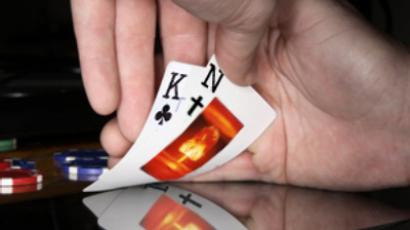Iran yields over UN-drafted nuclear deal
Iran is ready to send its low-grade uranium abroad for further enrichment as requested by the UN in exchange for nuclear fuel enriched to 20%, President Mahmoud Ahmadinejad said in an interview with state Iranian TV.
World media cite him as saying that Iran would have “no problem” giving away its low-enriched uranium and taking it back several months later as fuel rods.
It comes after Iran had informed the International Atomic Energy Agency (IAEA) last month that it did not accept the terms of the deal to swap enriched uranium for nuclear fuel.
Moreover, it claimed it would be producing its own nuclear fuel enriched to 20% for a research reactor by the end of January if the West did not come to terms and agree to the simultaneous exchange of low-grade fuel for higher-enriched uranium.
Under the UN-drafted deal’s terms, Tehran would transfer about 75% of its stock of low-grade nuclear uranium to Russia and France, where it will be further enriched and returned as nuclear fuel for civil use.
The deal is viewed as a measure to reduce Iran’s capability to produce nuclear weapons. Tehran has denied accusations that it is pursuing the creation of nuclear weapons.
Iranian Foreign Minister Manouchehr Mottaki, who is currently on a visit to Turkey, confirmed the principal readiness of his nation to ship nuclear fuel abroad for enrichment, Russian news agency Itar-Tass reported on Wednesday. The official said that Iran needed the fuel for the research reactor in Tehran, to be used for medical purposes. The reactor was initially set up through the assistance of the United States before the Islamic Revolution, Mottaki noted. The minister also said that the exact process of fuel exchange will be decided at the Vienna meeting between representatives of Iran, Russia, France and the United States.
Russian Foreign Minister Sergey Lavrov said that Russia welcomed Iran's initiative. "If Iran was to return to the scheme that was proposed in October, then we would welcome that," Reuters quoted the Russian official as saying.
Pirouz Mojtahed-Zadeh, a professor of political science at the Tarbiat Modares University in Tehran, has a positive view of the news. He believes that Ahmadinejad, who was previously restrained in his decision-making on this issue by Ali Khamenei, has finally had his say on this matter.
“I think what [Ahmadinejad] has done is to tell the world that he is ready to perform his good will in this respect and naturally he will have to wait for a response from the [mediators] and to take it from there.”
Iran is believed to possess 1.5 tons of low-enriched uranium.













